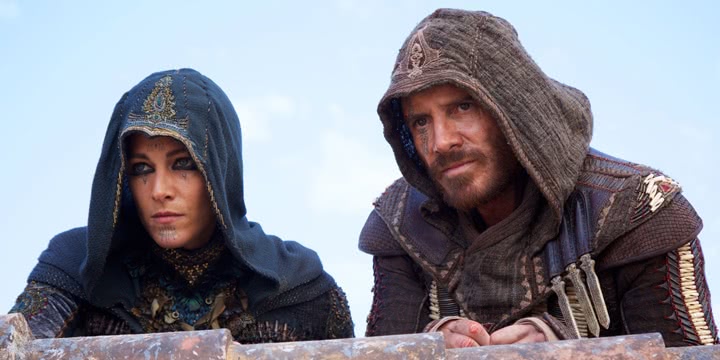“I love deadlines,” author Douglas Adams once said.
“I love the whooshing sound they make as they go by.” If there’s anyone who has become acquainted with the peculiar noise made by missed targets, it’s Justin Kurzel, the South Australian director in charge of wrangling the Hollywood monster known as Assassin’s Creed.
“I only finished [the film] last week, so it’s kinda odd talking about it in retrospect,” Kurzel admits with a wry chuckle. “The film’s in 3D as well, so we’re doing 3D passes and finishing the colour grade and working right up to the last second … There’s definitely something about the finality of it that churns your stomach a bit, when there’s no more decisions to make and it’s finally landed.”
Finishing work on a film a mere matter of weeks before it’s set to premiere is fairly mental, but Kurzel admits it’s not even the most insane challenge he’s faced during the lengthy production period of this big-budgeted beast. “The whole two years has been anxiety-inducing,” he says. “It’s never-ending when you make a film like this. There’s always the next stage of it, which is always really challenging.”
A lot of that comes from the multitude of expectations Kurzel has to deal with. The film, a time-hopping romp centred around Michael Fassbender’s Callum Lynch – a convicted murderer who realises he plays an important part in a long-standing war between the secretive Knights Templar and a legion of assassins – is an adaptation of the exceedingly popular video game series of the same name, as well as an expensive epic mounted by producers keen to bust blocks.
“I’ve never been involved in something that’s had such a strong brand and fan base from the beginning,” Kurzel says. “So the responsibility of that and understanding what you’re making and what you’re being inspired by [puts] a lot more pressure on the project. I guess you’re juggling a lot of balls of expectation with it.”
Also difficult for Kurzel was handling the film’s multiple timelines. Within its first 20 minutes, Assassin’s Creed jumps between ancient Spain, California in the ’80s and the present day, and is so filled with plot and lore that it takes a while before the audience has enough perspective and information to fully work out what’s happening.
“With these sorts of films the hole you can get trapped in is over-explaining things, and I think sometimes people can get to the point where they lose any mystery or intrigue. And so we were always conscious of that, thinking, ‘How do you tell a really complex story that audiences can really follow and engage with?’”
The answer came from Kurzel’s embracing of traditional cinema tropes and structure. “Adam [Arkapaw] the cinematographer and I were very inspired by things like Lawrence Of Arabia and some very old-school-looking films that did period in a very grounded way. We wanted to feel as much grit and reality in there as possible, which is why we shot a lot of it for real and in-camera. That was about trying to find something authentic in it.”
In some ways, Assassin’s Creed is a marked change of direction for Kurzel. Given his history directing dark and powerful semi-horror films like Snowtown and Macbeth, it’s initially hard to understand exactly what drew him to the project. But Kurzel was keen to explore the legacy of violence – a theme that has haunted his work from day dot.
“I was really curious about that, about violence, about discovering whether that is something that is connected to your DNA. If your ancestors were violent in the past or had violent tendencies, are those experiences passed on in your blood to your children? Do they experience those violent tendencies through instinct?
So I was quite fascinated by the legacy of blood, and the legacy of your own life, that it doesn’t just stop with you. What you experience and the way you live your life is passed on through your blood to your children and their children. So I found that very moving and very interesting.”
In that sense, Assassin’s Creed can be considered a companion piece to Kurzel’s debut, the true crime thriller Snowtown.
“Definitely in that film I was playing around with ideas of nature and nurture, and whether violence is just innately in someone or if it actually nurtures and grows in certain circumstances,” he says.
Indeed, as far as Kurzel is concerned, making a big-budget Hollywood blockbuster ultimately shares a lot in common with helming a small indie film. “When you’ve just got two actors on set and you’ve got a really well-written scene and you’re trying to find an intimacy between those two actors, it’s the same,” he says.
“With two actors, whether it be the ones I was working with on Snowtown who were non- actors and doing it for the first time, or Michael on Assassin’s Creed, it’s really the same. It’s that wonderful thing of two people listening to each other and responding to each other and the moment and the take. That’s something that’s always been consistent with the different films I’ve done.”
Assassin’s Creed (dir. Justin Kurzel) hits cinemas on Sunday January 1.


































